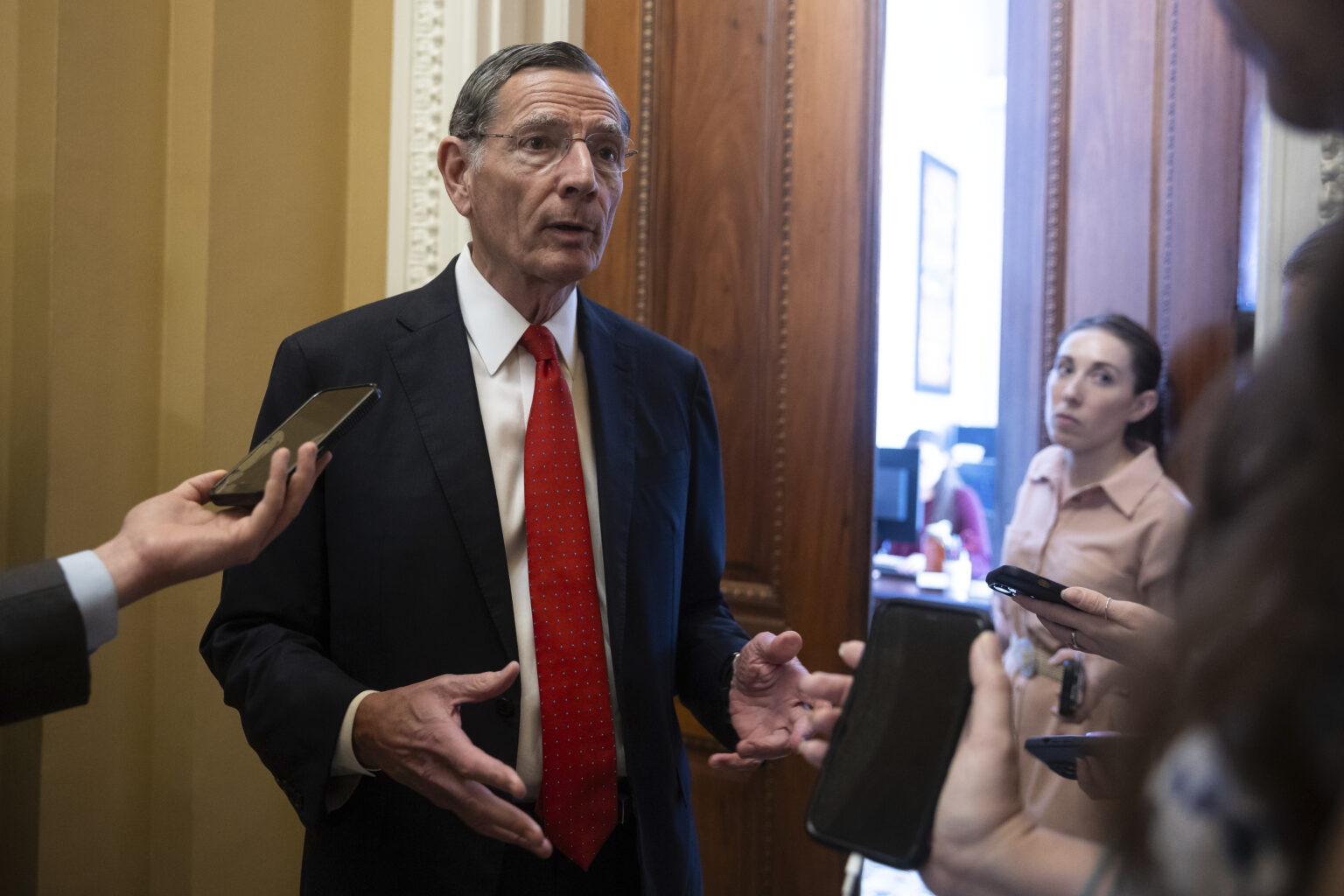Republicans are preparing to change the Senate rules to confirm most of President Donald Trump’s nominees a lot faster.
GOP senators huddled behind closed doors Wednesday to talk through proposals for a party-line overhaul of how presidential nominations are handled — the first time they’ve been able to meet in person since frustration about the slow pace of confirmations boiled over earlier this summer.
Republicans are coalescing around a plan to allow multiple nominees to be confirmed with one vote instead of votes on each individual nomination. And they intend to move fast: Senators expect the plan to be enacted before a weeklong break currently scheduled to start on Sept. 22.
The change would not apply to Cabinet-level nominees or picks for the Supreme Court and courts of appeals, senators said. Republicans are discussing whether to include nominees to federal district courts but haven’t yet reached a final consensus as they work to refine the proposal.
“The consensus is … arriving around the idea of being able to confirm multiple nominees at the same time,” Wyoming Sen. John Barrasso, the No. 2 GOP leader, said after the meeting.
Republicans are projecting confidence that they will be able to invoke the “nuclear option” in Senate parlance — that is, change the rules with a simple majority vote along party lines. But party leaders need to ensure the votes are locked down as they work through the fine details.
Three GOP senators could break ranks and still let Vice President JD Vance break a tie. Sen. Thom Tillis (R-N.C.) has already said he doesn’t support going nuclear.
It’s just the latest change over the past decade to the Senate’s rules on nominations. Democrats, under then-Majority Leader Harry Reid, got rid of the 60-vote threshold for most nominations, and Republicans subsequently got rid of the same threshold for the Supreme Court.
Republicans also changed the rules during the first Trump administration to cut down on the amount of debate time required for most executive nominees as well as district court judges.
They’re also leaving the door open to allowing recess appointments, which would let the president bypass the Senate altogether, at least temporarily. But that idea is sparking unease in some corners of the conference, and some Republicans argue that a permanent rules change that would also apply to future administrations is the better option.
Even as Republicans move toward overhauling confirmation procedures, GOP senators reiterated this week that there is no appetite within the conference to get rid of the “blue slip” tradition, which allows senators to block district court and Justice Department nominees in their home states. Some Republicans said they’ve reached out to Democrats to see if there’s any appetite for bipartisan rules changes, but GOP senators anticipate they will need to act along party lines.
Democrats have defended their slow-walking of Trump’s nominees with Senate Minority Leader Chuck Schumer saying last week that “historically bad nominees deserve a historic level of scrutiny by Senate Democrats.”
Read the full article here


